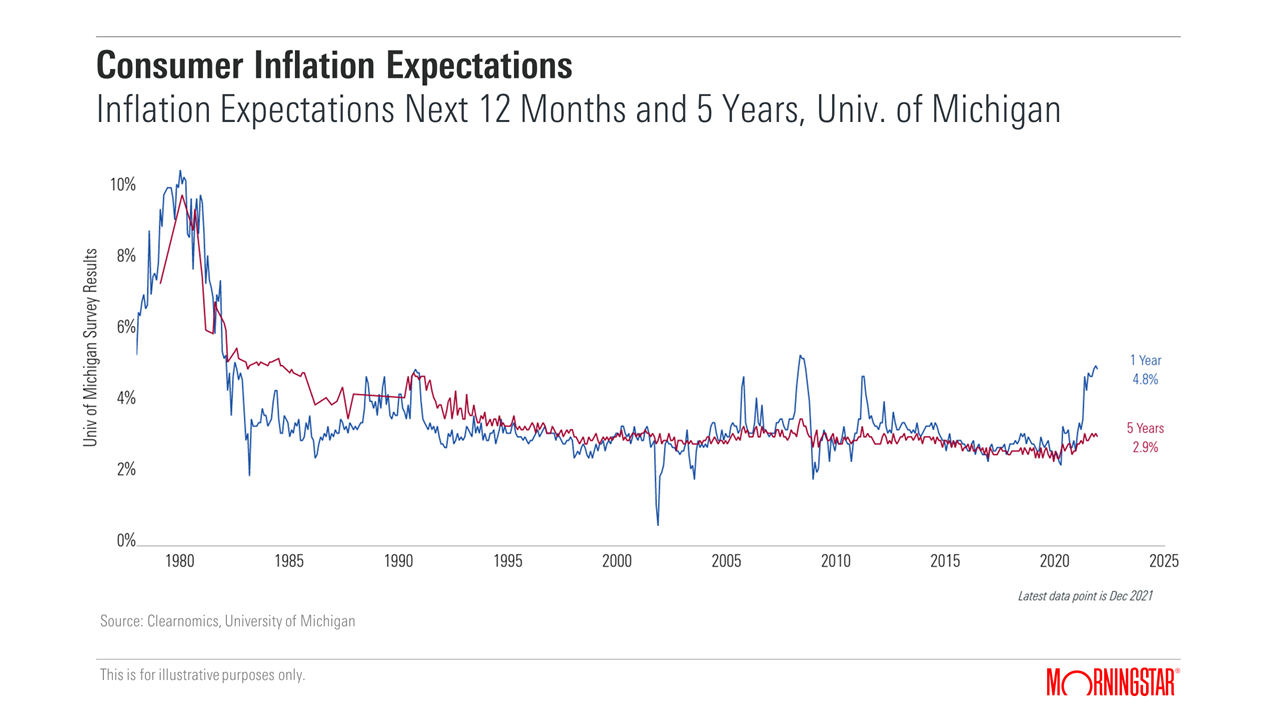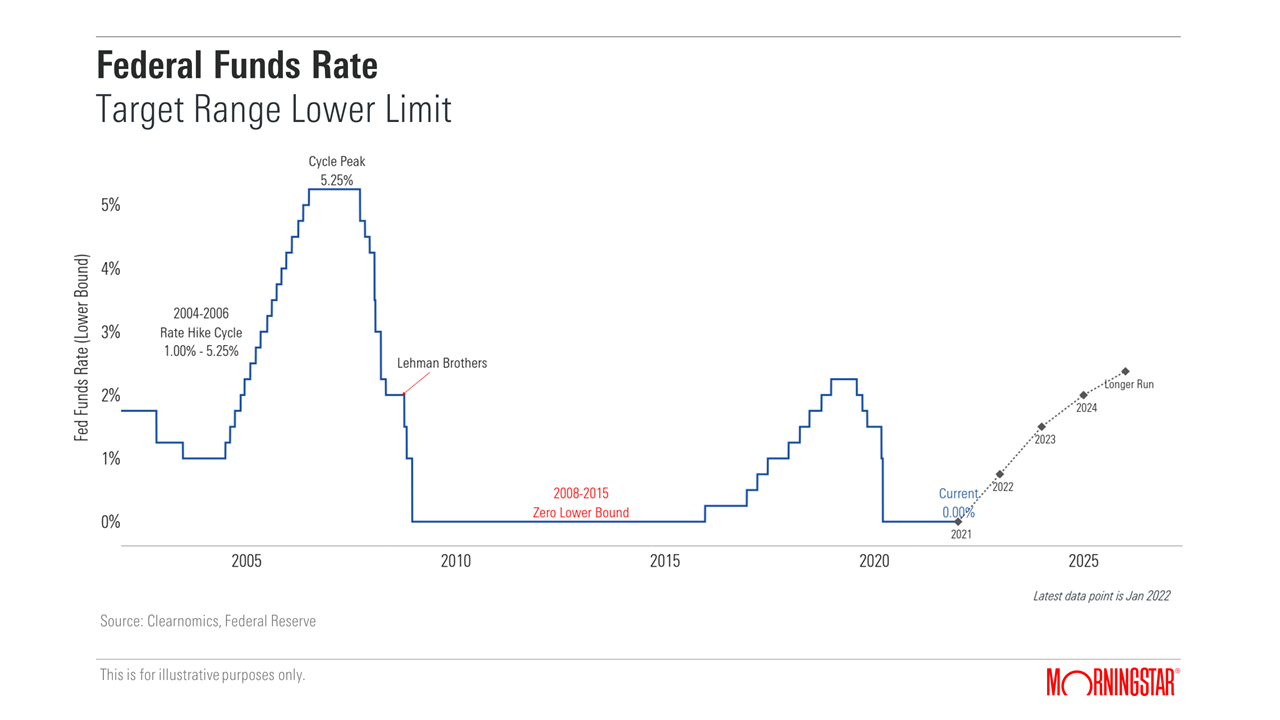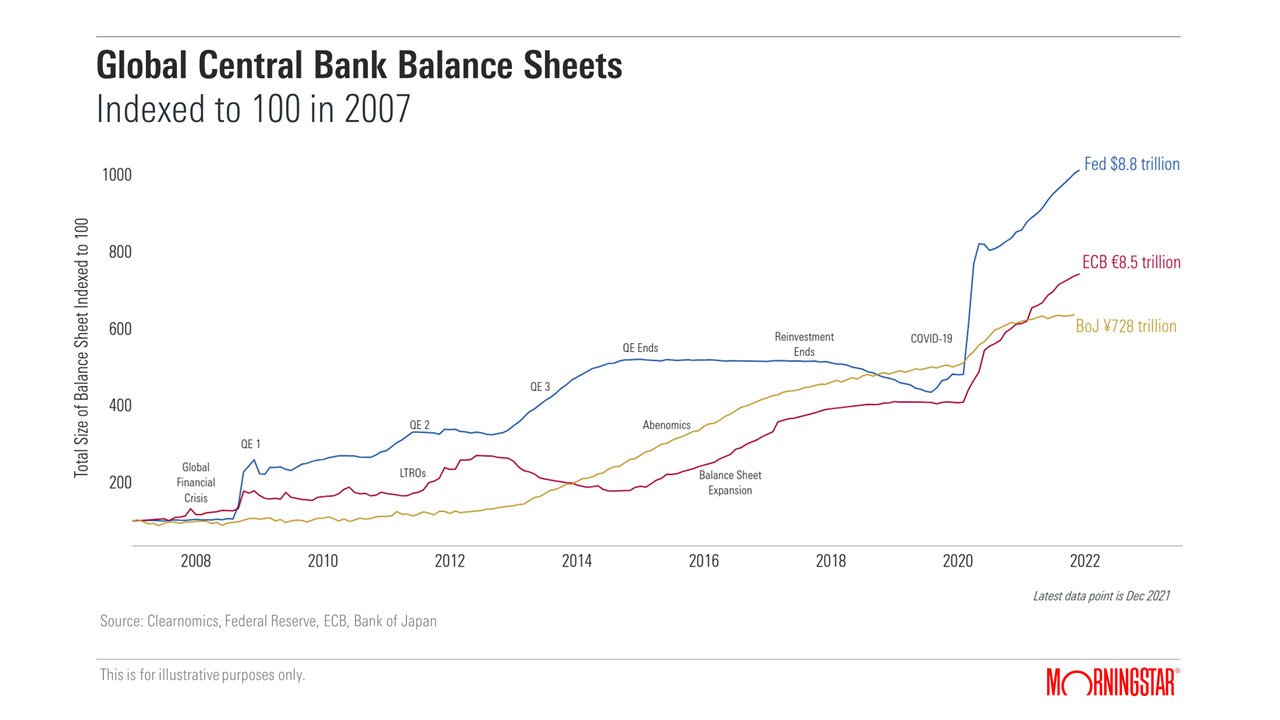Protecting a Client's Portfolio From Inflation
To achieve any meaningful progress toward financial goals, investors need to clear the inflation hurdle.

This article is the last in a series of four collected from Morningstar Investment Management's 2022 outlook, highlighting the most important issues facing investors in the coming year. Marta Norton is the group's CIO for the Americas.
When it comes to the most insidious risks facing investors, inflation may well top the list. Its impact on portfolios doesn't appear until investors compare gains to the climbing cost of living. To achieve any meaningful progress toward financial goals, investors need to clear the inflation hurdle.



Beating Inflation Is Investing 101
For many years, clearing the inflation hurdle hasn't been difficult. With a stable supply-and-demand balance, the cost of living has broadly risen at a predictable, modest pace. Meanwhile, falling rates, expanding valuations, and individual company successes have fueled broad-market gains at a rate well above historical norms.
But when inflation does materialize, particularly at higher levels, its impact can be widespread devastation. Investors with shorter time horizons, who typically have greater exposure to bonds, are particularly vulnerable. A significant portion of the total return generated from bonds comes from income, which, for most bonds, is predetermined (hence the term "fixed" income). As inflation rises, the fixed income delivered by the bond is worth less. In response, investors may sell bonds, driving prices down and further hurting returns.
Among investors with shorter-term horizons are retirees, who no longer generate wages that could potentially rise to inflation-adjusted levels.
But it's not just the bond investor who faces risk during periods of inflation. While equity markets aren't subject to the same fixed-income conundrum, their total return can also be in jeopardy; their dividend payments are worth less, and their earnings can suffer from higher input costs, particularly if they are not in a position to pass along higher prices to their consumers. As earnings come under pressure, so can their ability to generate inflation-beating returns.
Even high-flying growth stocks aren't immune to inflation. In fact, growth stocks have historically shown greater vulnerability to inflation than their value brethren. The explanation involves the expectations around earnings: as inflation rises, so do interest rates, which means investors expecting higher earnings from growth companies discount them back to present day with a more penalizing level of interest rates.
This leaves us with two questions as we enter 2022:
- If inflation is inconsistent--and unpredictable--how do you protect your portfolio from it?
- Given that both bonds and stocks are vulnerable to inflation, is there anything you can do to protect against it, even if you could see it coming?
You don't need to know with certainty that inflation is coming. We view portfolio construction as an exercise of probability, weighing one market environment against another. We build portfolios for a range of environments and rarely make binary calls on particular outcomes.
Fortunately, our research suggests that many of the assets best suited for inflation protection are also relatively well priced. These assets include:
- Short-duration bonds or cash (fixed payments have very short durations and thus can reset as rates rise).
- Equities that are positively correlated to inflation, such as energy stocks.
- High-quality companies with high degrees of pricing power that can pass along rising input costs.
However, there are also sources of protection we don't like. For example, inflation-protected bonds (including Treasury Inflation-Protected Securities, or TIPS) are a common go-to source; however, these are less attractively priced, in our view. The same applies to high-yield bonds and floating-rate bonds, both of which benefit from improving credit profiles during inflationary periods but are also unattractively priced. As a result, we have limited exposure to these asset classes, despite their inflation-protection properties.
Key Takeaways Regarding Inflation
Inflation is a well-known risk facing investors, and we take it seriously. In 2022, as always, we believe inflation is worth protecting against, but we caution investors away from trying to predict inflation outcomes with precision.
The key is to understand how each asset may help in different inflation outcomes, assessing the total portfolio impact, and whether it will deliver on its objective. It's worth noting that some assets that have been in vogue for the past few years--especially U.S. growth stocks--strike us as not only overpriced but also as vulnerable in an inflation shock.
Those considerations aside, over the past several decades inflation has been more a specter in investors' minds than an actual reality they need to face, and today's market could very well prove to be more of the same. It's for that very reason that we think along the lines of probability rather than forecasts and account for a range of market environments. In the end, if inflation once again fails to materialize as a real threat, we do not believe our portfolios will be at a disadvantage; the driving thrust of their positioning is valuations, not inflation.
Morningstar Investment Management LLC is a Registered Investment Advisor and subsidiary of Morningstar, Inc. The Morningstar name and logo are registered marks of Morningstar, Inc. Opinions expressed are as of the date indicated; such opinions are subject to change without notice. Morningstar Investment Management and its affiliates shall not be responsible for any trading decisions, damages, or other losses resulting from, or related to, the information, data, analyses or opinions or their use. This commentary is for informational purposes only. The information data, analyses, and opinions presented herein do not constitute investment advice, are provided solely for informational purposes and therefore are not an offer to buy or sell a security. Before making any investment decision, please consider consulting a financial or tax professional regarding your unique situation.

/s3.amazonaws.com/arc-authors/morningstar/1bb3b7d2-89c3-40c6-ad6d-01d4f0004f7a.jpg)
/cloudfront-us-east-1.images.arcpublishing.com/morningstar/EC7LK4HAG4BRKAYRRDWZ2NF3TY.jpg)
/cloudfront-us-east-1.images.arcpublishing.com/morningstar/6ZMXY4RCRNEADPDWYQVTTWALWM.jpg)
/cloudfront-us-east-1.images.arcpublishing.com/morningstar/URSWZ2VN4JCXXALUUYEFYMOBIE.png)
:quality(80)/s3.amazonaws.com/arc-authors/morningstar/1bb3b7d2-89c3-40c6-ad6d-01d4f0004f7a.jpg)